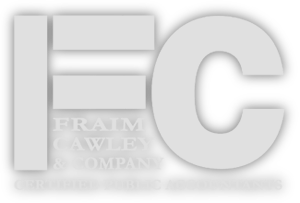“ I know you think you understand what you thought I said but I’m not sure you realize that what you heard is not what I meant” – Alan Greenspan
I remember being in a meeting a few years ago when the railroad unveiled their new marketing campaign. When everyone saw the commercial along with a fancy new tagline, people applauded. I looked around the room to see if anyone’s facial expression matched my own (puzzled…surprised…jaw hanging open). But all I saw were smiles.
This was the new campaign:

That sounds fine, until you take a little trip down memory lane to 2001:

Now, I want to be very clear: I am not implying in any way that the railroad engages in any kind of fraudulent activity. That’s not the point. What I am stressing though is that I believe this to have been a very poor marketing choice.
Seriously – how was this not caught? How did the very expensive marketing firm they hired not do any kind of research for slogans with synonyms of “infinite” followed by “possibilities”? I emailed the CEO and from the response I got back, I was the first to identify the similarly. And to be fair, Enron had one of the most famous accounting scandals in history. Maybe its tagline isn’t so well-known among non-accountants. But still – someone, somewhere in the approval process should have noticed this.
So what’s my point in telling this story?
All of us care about our appearance and the image we are projecting to the world. This applies to our personal lives (our appearance, the way we speak) and most importantly in the context of this discussion – in our business lives. But sometimes we aren’t the best judges of our own image and how we appear to others. (Case in point: the balding guy with the comb-over who thinks he’s totally pulling it off. Or how about a mother daughter team I saw on the TV show “The Biggest Loser.” Both were about 150 pounds overweight and one was a women’s health nurse practitioner and the other was a dietician! Do you suppose they had some credibility issues in their work?)
I’ve worn outfits that I thought looked good, but that did not. (“Wait, you’re telling me this fanny pack along with Crocs, fire engine red shorts, a Hawaiian shirt, and white knee socks ISN’T working??”) We all have. But if the image our business projects is not what we believe it is, then the consequences can be significant.
Since we have a tendency to view ourselves through a skewed lens, we do well to have independent advisors tell us how we are really doing. What we feel our company stands for may not at all be what is being perceived by the consumer. Find someone who will tell you honestly and objectively how you are doing and what needs to be corrected – a trusted friend, a good customer, your spouse. Better yet, consult an actual marketing expert to advise you. The small of money you will spend is much less than lost sales from a poor image will cost you.
Professional tennis player (and self-marketer extraordinaire) Andre Agassi is famously quoted as saying “image is everything.” In the business world image is certainly not “everything.” Your expertise, hard work, abilities, and the value you bring to your customers mean more in the long run obviously. But if an “image issue” causes potential customers to turn to your competitors instead of you, then it becomes, if not everything, a big thing. A little polishing up of our images can go a long way toward the success of our business endeavors.
Any accounting, business, or tax advice contained in this communication, including attachments and enclosures, is not intended as a thorough, in-depth analysis of specific issues, nor a substitute for a formal opinion, nor is it sufficient to avoid tax-related penalties.




